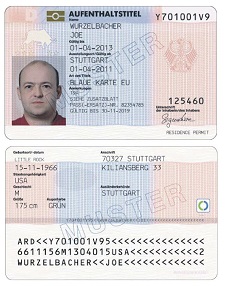EU "Blue Card" for highly skilled specialists
Germany implemented the EU Directive "Blue Card," COUNCIL DIRECTIVE 2009/50/EC of 25 May 2009, on August 1, 2012, to facilitate the immigration of highly skilled employees from countries outside the EU. This directive aims to attract talented foreign professionals to contribute to the German labor market. Its impact on the practices of German embassies abroad and national aliens offices in regard to the immigration of highly skilled nationals remains to be seen.
To bolster the German labor market, the Federal Government introduced § 19a of the aliens act. This measure substantially reduces the income threshold for an unlimited residence permit for highly skilled workers. The government hopes that this initiative will present an attractive offer to skilled foreign professionals and foster a "welcoming culture" for highly skilled immigrants and specialists, as stated in a press release. The private sector is expected to offer appealing job opportunities for international experts.
EU Blue Card holders can obtain a permanent residence permit after working for at least 33 months in accordance with § 1 of the Aliens Act. They must have made compulsory or voluntary contributions to the statutory pension insurance or incurred expenses for comparable services from an insurance or care institution. Meeting the conditions of § 9, paragraph 2, sentences 1, 2, 4 to 9 of the Aliens Act is also required. If the foreigner can prove German language proficiency level B1, the required period of employment is reduced to 21 months, granting the EU Blue Card a status akin to an EU 'green card'."
For the year 2023, the minimum gross annual income for the EU Blue Card is set at 58,400 euros. Meeting this minimum salary threshold exempts the application from the approval of the Federal Employment Agency (§ 2 Para. 1 No. 2 Letter a Employment Ordinance). The salary limit must be reached regardless of the working time model, without proportional calculation for part-time jobs. Moreover, no individual examination of the case is required if the salary limits are met.
There is a reduced minimum gross salary limit of 45,552 euros for occupations considered "deficient" (§ 2 (2) of the Employment Regulation). For this category, the EU Blue Card can only be issued with the approval of the Federal Employment Agency. No priority check is conducted; instead, the focus is on verifying if the working conditions meet local standards. If the foreigner possesses a domestic university degree, obtaining the EU Blue Card does not require the approval of the Federal Employment Agency, even if they fall under the regulation for occupations with shortages (Section 2 (1) no. 2 letter b of the Employment Regulation).
As your lawyer, I will support you in navigating the "welcoming culture" at the German immigration authorities, embassies, and administrative courts, ensuring that you can benefit from the opportunities provided by the Blue Card visa.
Blue card visa? Click here

